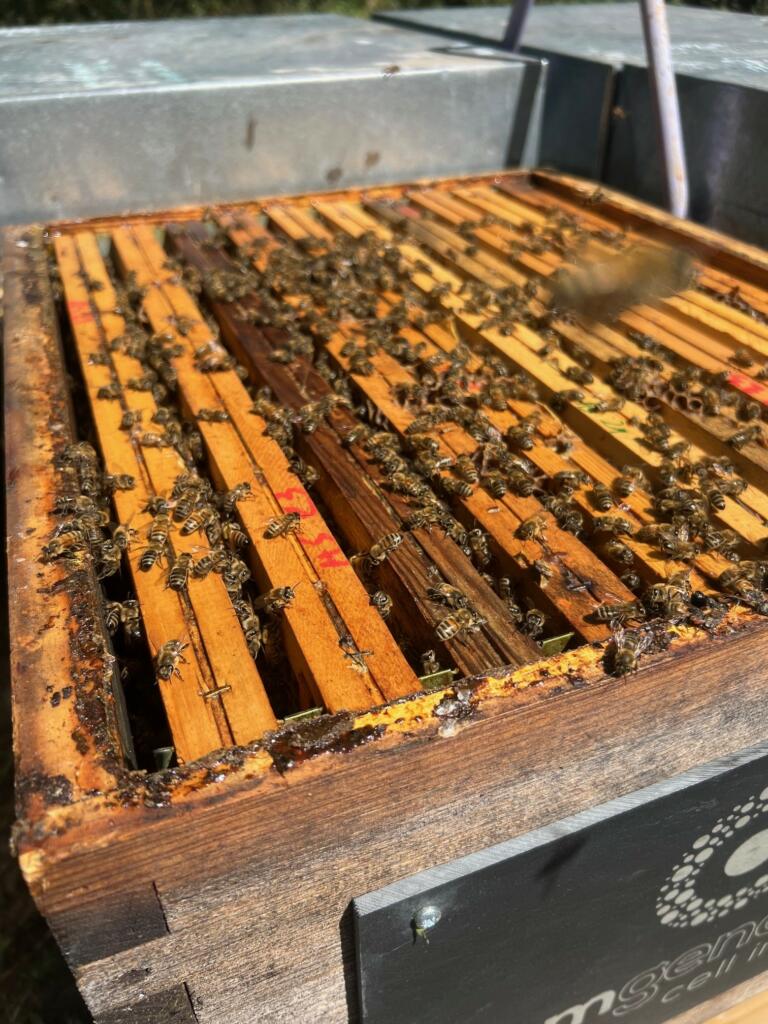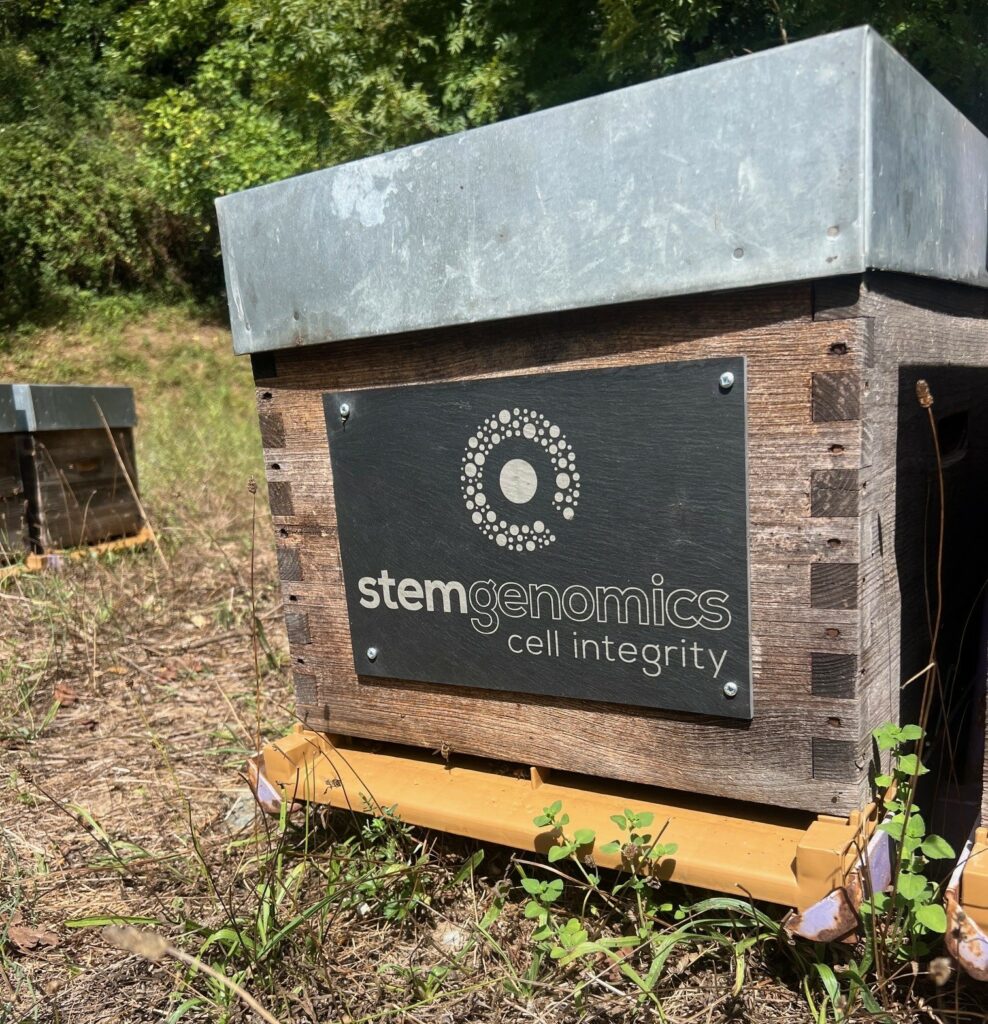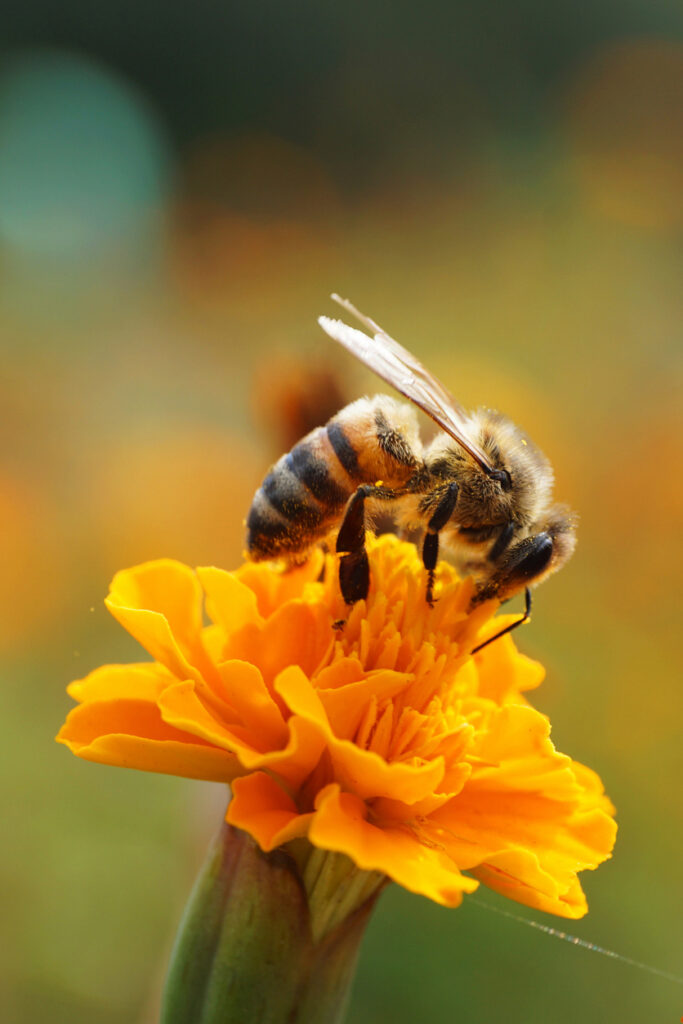As part of our social responsibility initiatives, Stem Genomics has chosen to support those who make their living from natural products like honey and honey-derived goods. Today, we proudly introduce the beehive we sponsor!
Owned by local beekeepers Alexandre Sintes and Nicolas Davin at the bee farm Clos des Sentinelles, this beehive is actively producing honey that we will soon have the opportunity to taste! Alexandre carefully tends to what he calls “sentinelles nomades” (literally translated as “nomadic sentinels”) and regularly sends us pictures of their seasonal migrations throughout our local Occitania region. This allows the bees to harvest pollen from a variety of local flora: garrigue flowers, thyme, lavender, chestnut trees, and more from our diverse regional landscapes spanning seaside, mountain, and forest areas.
Stay tuned—we might lend him a hand someday!


Stem Genomics’ sponsored beehive currently located in Sumène area (30)
Bees are an essential part of the biodiversity on which we all depend for survival. Bee populations have been declining globally over recent decades due to habitat loss, intensive farming practices, climate change, and excessive use of agrochemicals such as pesticides. Taking action to protect bees is therefore urgent.
A Few Interesting Facts:
- Bees are the world’s most active and efficient pollinators. According to bee experts at the Food and Agriculture Organization (FAO) of the United Nations, one-third of the world’s food production depends on bees. Approximately 75% of our crops produce better yields when animals assist with pollination. Bees visit more than 90% of the world’s top 107 crops. To put this in perspective, a UK study estimated that it would cost British farmers an incredible £1.8 billion annually to manually pollinate their crops, making agriculture unsustainable.
- Bees help improve soil health through the root systems of the plants they help produce. A healthy plant community is vital for maintaining soil diversity and nutrient richness that many species depend on.
- Beekeeping and honey-derived products create local jobs and provide an important source of income for many rural communities. According to IPBES, the western honey bee is the most widespread managed pollinator globally, with more than 80 million hives producing an estimated 1.6 million tons of honey annually.
- Bee products such as propolis, pollen, and royal jelly have been used for medicinal purposes for thousands of years. Beeswax is utilized in waterproofing and fuel production. It also appears in numerous skincare products and is used by pharmaceutical industries in ointments.

Here are a few links to interesting articles for diving deeper into this topic and discovering what else you can do to help bees:
https://www.unep.org/news-and-stories/story/why-bees-are-essential-people-and-planet
https://www.worldwildlife.org/stories/why-bees-are-climate-heroes
https://www.medicalnewstoday.com/articles/why-are-bees-important-to-humans
https://www.woodlandtrust.org.uk/blog/2023/04/why-are-bees-important/

